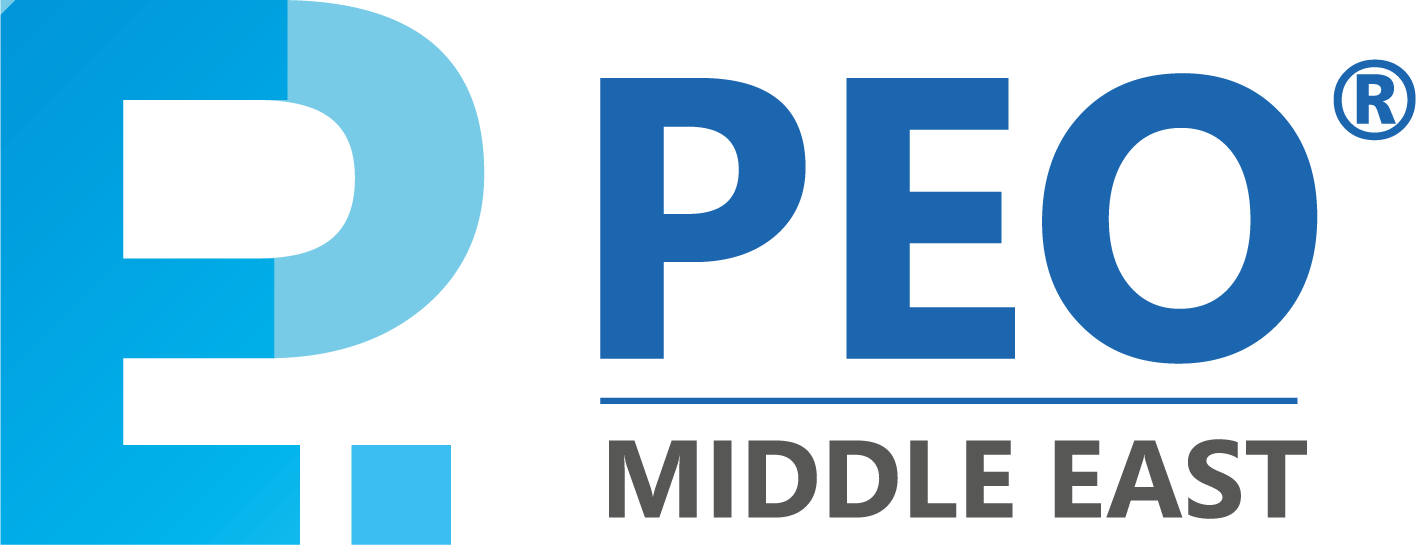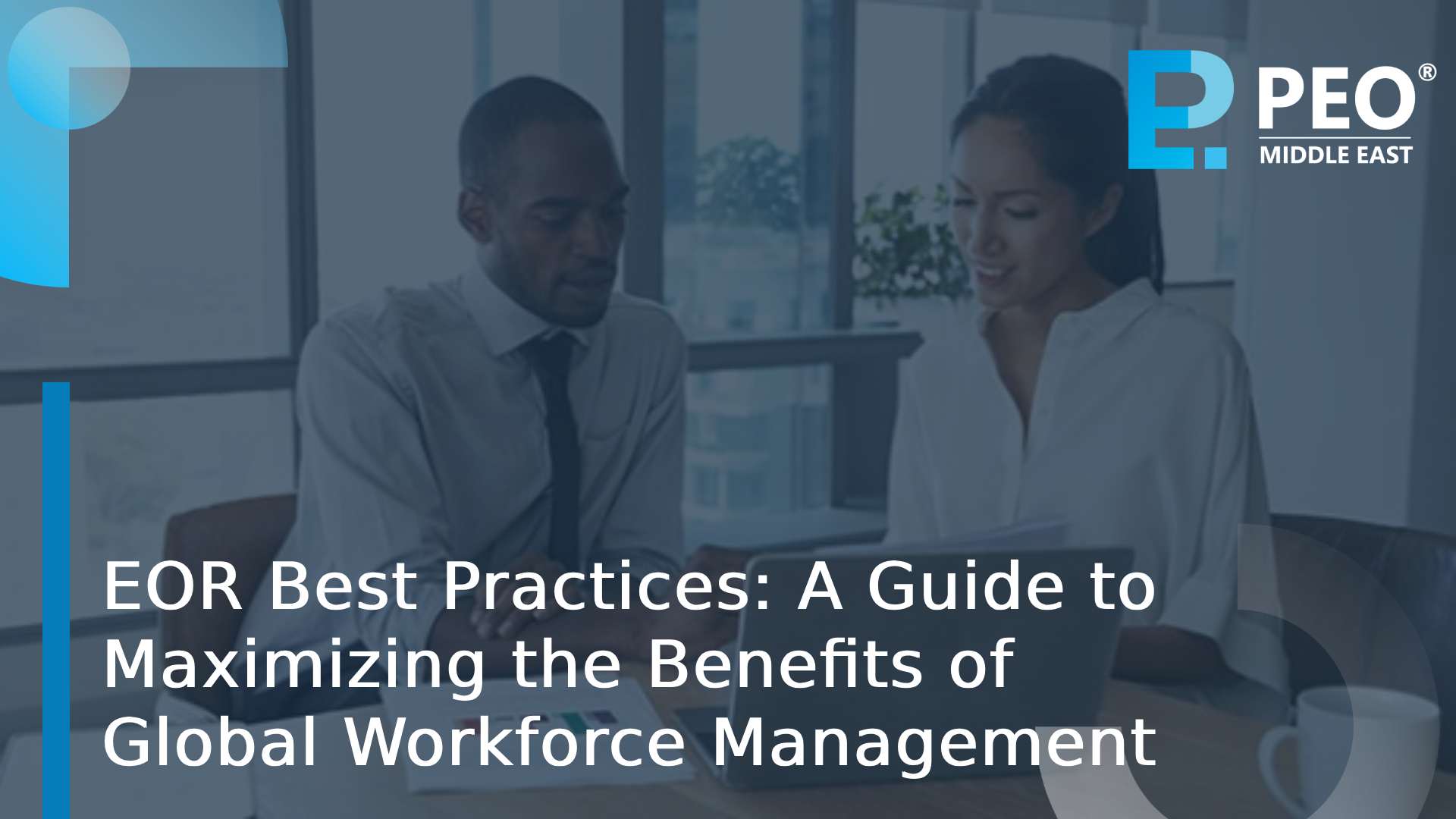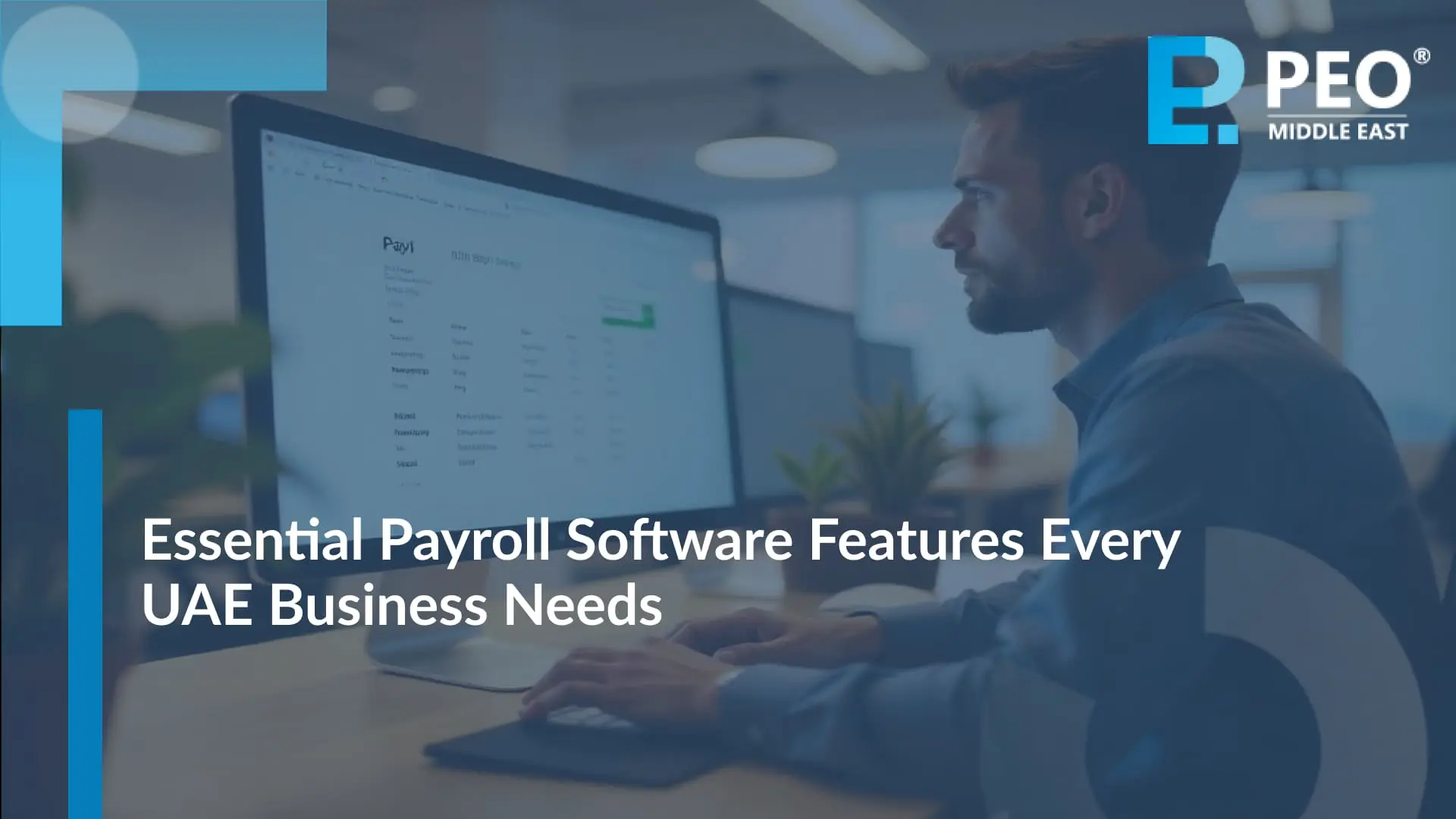With EOR best practices, you can balance your requirement for talented workers and compliance with local laws. Also, processes related to human resources will be more efficient and effective. In a word, hire an Employer of Record for your work team and you can revolutionize the way you use HHRR services.
In this article, you will be able to learn what the best practices that EOR services apply are. Likewise, you will learn how these activities help in various areas of your business.
Employer of Record (EOR) services Significance

- An Employer of Record (EOR) offers outstanding, quality service, through strategies, experience, and resources for successful global expansion.
- Additionally, the services of an EOR are a cost-saving solution, which is an advantage over establishing a local entity.
- Partnering with this type of organization also helps you comply with local laws as well as have a good employee experience.
- Providing expert talent locally quickly and effectively is also an advantage of hiring an EOR.
However, you should consider two alternatives, direct or indirect EOR, in which the first of them handles the entire HR. Hence, with this model, you will be able to onboard employees more efficiently. Therefore, the benefits of global workforce management with an EOR are numerous hence its importance
Difference between EOR standard practices and EOR best practices
Not all Employer of Record have the capabilities to offer an appropriate service, especially if the size of the company exceeds their capabilities. Therefore, there are differences between common practices and those that allow EORs to offer a higher quality service.
Implementing EOR best practices for mitigating legal risks and challenges
One of the aspects that companies that have a presence in international markets must attend to with great care is compliance. Thus, EOR best practices start with professional and experienced management of compliance risks. This is because EORs handle administrative HR tasks, including:
- Payroll
- Benefits Administration
- Tax compliance
- Immigration regulations
- Labor laws
Therefore, a more effective EOR helps you comply with complex legal regulations, through the necessary expertise and resources. These good practices also make it possible to evaluate compliance risks and establish strategies to mitigate them. Hence, while standard processes can help you with compliance, they may not cover the entire legal landscape.
Additionally, if you establish your business in different locations, you will need to comply with legal obligations, which may vary by jurisdiction. Hence, you need to partner with an Employer of Record that covers all laws anywhere. Therefore, with an EOR that provides a service tailored to best practices, you can have the peace of mind of operating without risk of non-compliance.
EOR Best Practices for Compliance
In this case, the best practices that an EOR applies to mitigate legal risks and overcome challenges are the following:
- They have the necessary knowledge in the specific industry for which they are hired.
- They constantly review compliance policies and processes to align with labor and business regulations.
- The EOR establish constant and effective communication with your business so you can understand what you need for compliance and manage them appropriately.
- They offer advice and training for all employees and departments carrying out compliance-related activities. This way, your company can maintain accurate records and report according to local or global regulations.
- They conduct periodic evaluations of compliance processes to correct any failures and avoid more serious problems.
- Another of the EOR best practices is developing contingency plans to address compliance issues. This includes reporting and addressing any issues arising from the violation of any labor or business rule or regulation.
Following these best practices can help companies ensure that compliance risks are effectively mitigated with the help of PEO and EoR.
EOR Best practices for seamless onboarding and integration

Implementing best practices to enhance HR efficiency
The services of an EOR, as we have mentioned, are an effective solution within the framework of a company’s Human Resources. In this case, the optimization of processes in this business area offers a competitive advantage for its success. Additionally, these professional services can transform your workforce management if they fit your business objectives.
This way, your business can adjust to any circumstance and be better prepared to face challenges and take advantage of opportunities. Therefore, through EOR best practices the global expansion process is more fluid. In addition, it is a solution that provides great benefits at a low, profitable cost.
EOR Best Practices in Human Resources
In the search for solutions for Human Resources management at a global level, the best practices of the Employer of record contemplate:
- Adapt practices to each type of company. An EOR will be able to work together with your organization to analyze the objectives it will have and accordingly organize human resources skills.
- Structure strategies with the human resources of your company. This action can guarantee optimal performance and employee satisfaction and, therefore, an increase in productivity. Furthermore, having your approach, you will be able to make changes in marketing strategies that may be different from one country to another.
Workforce projection
- With good planning of your workforce, you can achieve competitive success. Therefore, EOR best practices will bring their experience in this area and can help you anticipate what your future staffing needs will be. Likewise, it will be able to narrow talent gaps and low skills.
- You will be able to take advantage of the knowledge contributions from your EOR. This way, you will be able to make informed decisions based on talent recruitment and retention strategies. Also, it will be among the most agile and competitive, capable of facing obstacles and taking the opportunities that arise in the market.
- Timely planning and adaptability of HR strategies. With these components, you will maximize your company’s competitive advantages. Similarly, it will allow you to adapt to the different demands of each region.
Best practices for fostering collaboration and teamwork across borders
Below, we will mention the practices of an EOR useful to foster collaboration and teamwork in your organization:
- A total and clear understanding of the objectives. The EOR work team must know the vision of their organization.
- They have a well-structured team. Each member has a role to fulfill within the team, for which they assign and monitor each member.
- mutual support. All members of the work team must feel the support of each of their colleagues and other members of the organization.
- Competent training. The EOR can ensure that each team member has help during difficult times. In this case, they provide training at the right time so that the job is completed in the best way.
- Proceed as a true team. A work team formed by the EOR must function as a whole, as a member of an integral body.
Best practices for fostering collaboration and teamwork across borders
Achieving good coordination and functioning of a work team will not be easy many times. Likewise, this integration will be more difficult for remote work teams but with the help of the EOR best practices could achieve this. Below, you will see 15 of these practices applied by the Employer of Record:
- Establish clear objectives and goals. In this case, they establish achievable and clear objectives for the team, explaining them very well to each team member.
- They define roles and responsibilities clearly. They provide clear expectations for the entire remote team and ensure that each member fully understands their responsibilities. Also, they know with certainty what the business expectations are.
- They keep everyone informed and up to date. They hold regularly scheduled meetings with the team to ensure constant connection. Likewise, they analyze the progress, as well as the obstacles to be solved for future activities.
- Promote communication. A good EOR is in constant communication for collaboration, to have a successful remote team. For example, a good idea is to use some software for real-time video conferencing.
- They help you create a trusting work environment. Your remote work team must trust that their work and ideas have value for you.
- They solve problems quickly and efficiently. Problems or conflicts may arise in your work team, but EORs can handle them quickly and effectively.
- Promote accountability in their team. They demonstrate that they fulfill their job responsibilities.
- They create remote policies and operations. Enforce rules at work so that everyone can have the same guidance when working.
- Provide collaboration tools. Tools like Slack Google and Workspace can help manage projects and keep your organization on top of activities.
- Implement realistic deadlines and expectations. Enforcing deadlines remotely could be difficult, especially if your work team is in different time zones.
Best practices for budget-friendly global workforce management
Below, you will see what the best practices for global management of the economic workforce are:
Analytical skills
The first thing you will need to do is analyze data such as market trends, tax laws, exchange rates, and labor costs. You will also need to have the ability to understand data and identify patterns of opportunities and risks. With analytical skills, you will be able to make timely decisions and forecast what is to come, and measure the results.
Communication skills
Communicate expectations about budgets and plan objectives so that your team, partners, and stakeholders are clear about them. Also, listen to questions, concerns, and comments by responding quickly and respectfully.
With communication skills, you will be able to generate an environment of trust and achieve the integration and collaboration of the members. Below, we provide you with some additional recommendations:
- Promote a culture of communication, giving importance to cultural diversity and the clarity that must exist for the transmission of messages universally.
- Create channels for feedback and open dialogue for the entire team and also for stakeholders.
- Use current communication tools such as virtual tools that bridge geographic gaps.
Adaptability skills
Another benefits of global workforce management is learning to adapt to changing demands and situations. In this case, changes in supply, prices, demand, events, and unexpected crises. Likewise, you can adjust the budget and communicate the changes and the reasons for them.
Negotiation skills
You will need to be able to negotiate with vendors, suppliers, and customers, ensuring the best terms and offers for their budgets. In the same way, you will be able to negotiate with your global team of executives and managers and thus have a balance in priorities and competencies.
Furthermore, with these skills, you will optimize resources and reduce costs which will cause an increase in value. Below we will show you some other characteristics that are important for your company:
Technological skills
Use technology platforms such as software, cloud-based dashboards, and applications to best manage your budget. In addition, you will be able to use the channels and tools for collaboration and communication with your partners and teams in general. With this skill that the EOR has, you will save time, effort, and money.
In conclusion, with EOR best practices you can create a collaborative and effective team with which your organization will be successful. In the same way, you will be able to best manage your financial resources and potential partners and clients. Therefore, you will be successful in promoting your company and placing it in the industrial competitive field.





